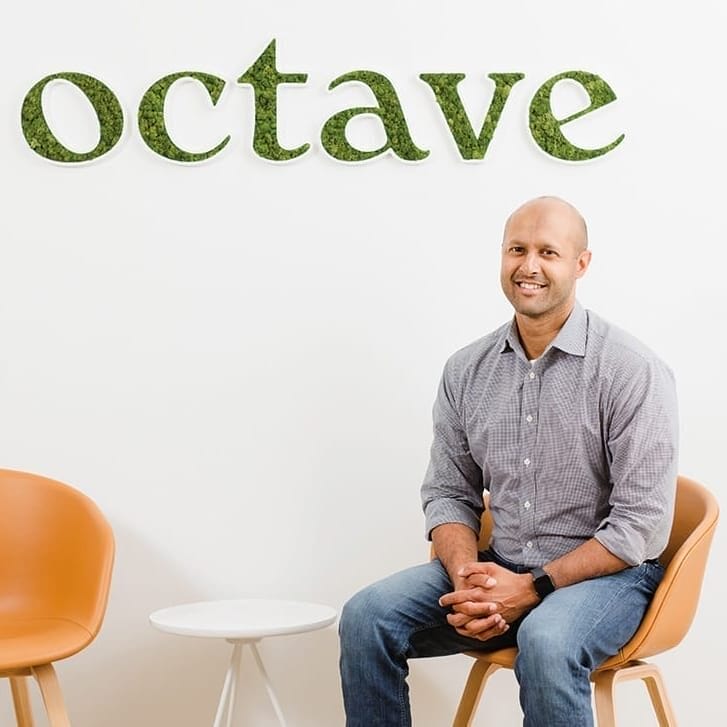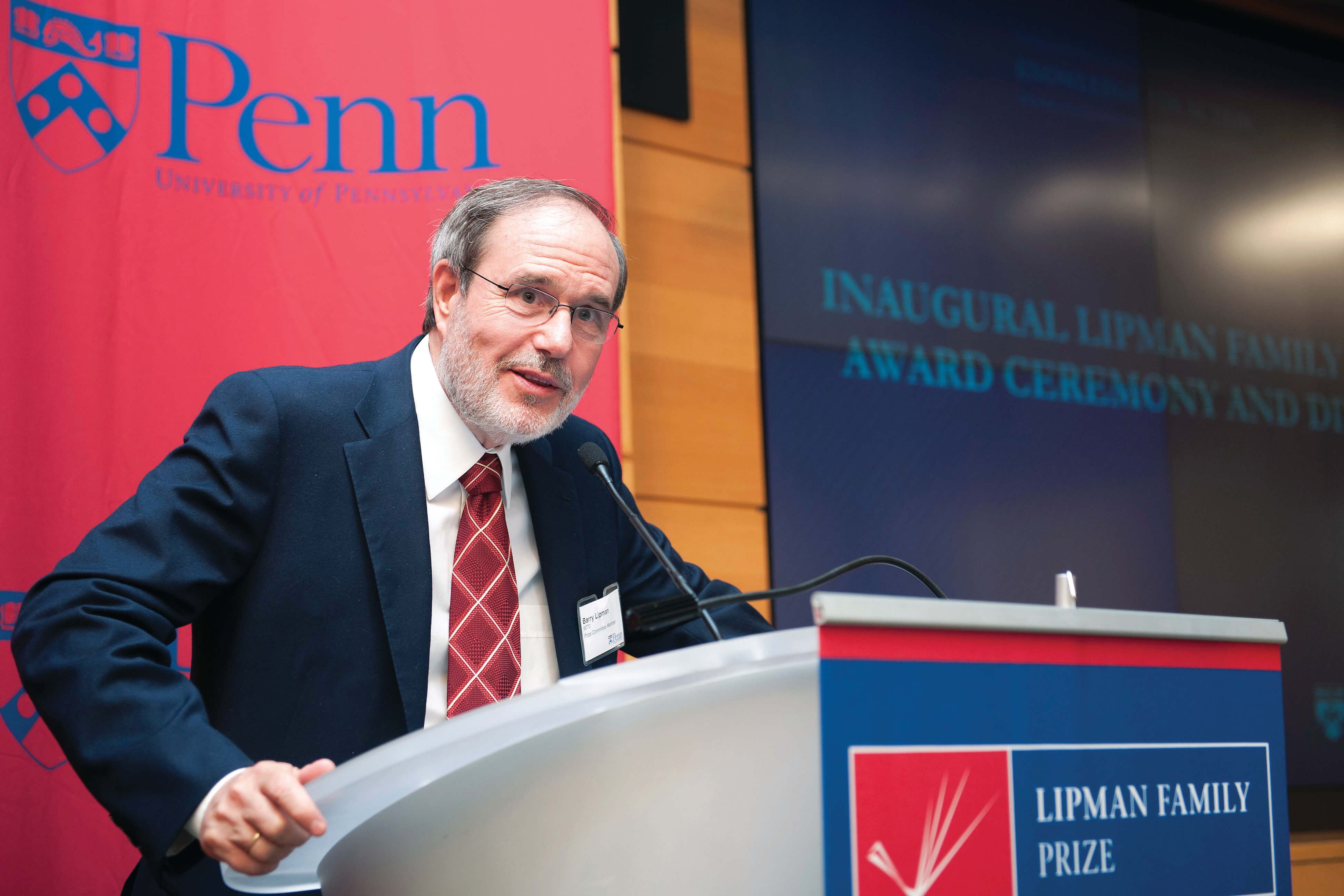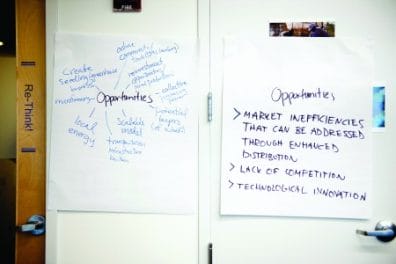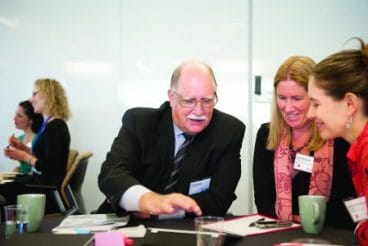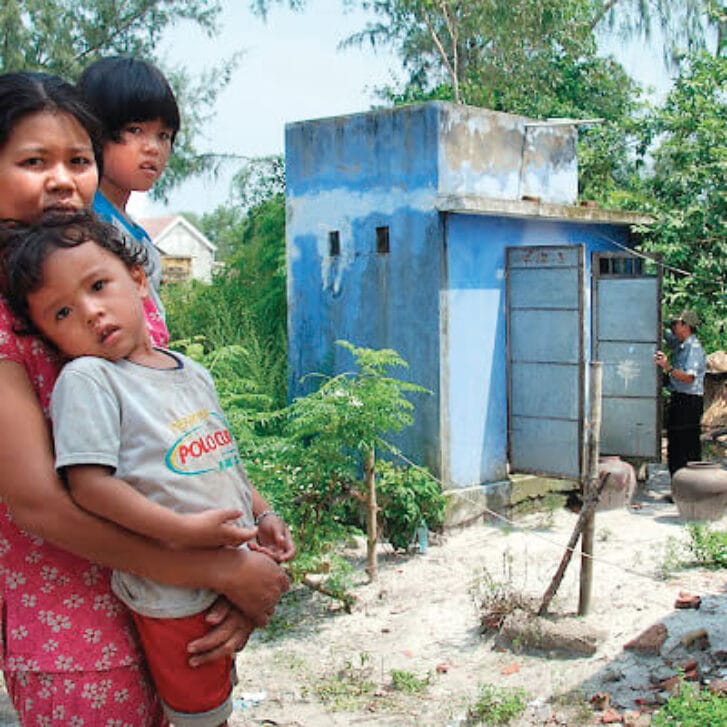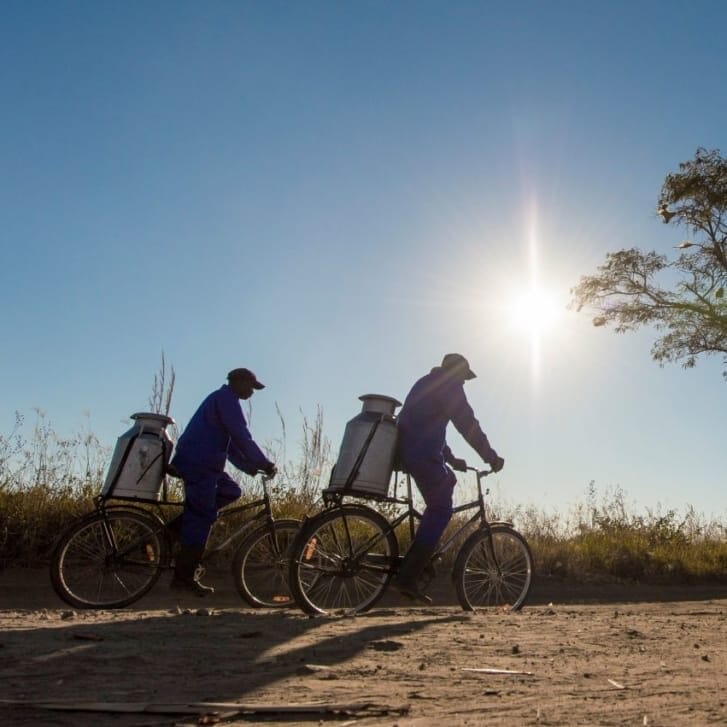One early morning nearly three years ago, Barry Lipman, W’70, realized the way that he could effect positive change in the world. Co-founder of law firm Goldfarb & Lipman LLC, Lipman spent his limited free time serving on the boards of San Francisco nonprofits, including the San Francisco Zoological Society and the Homeless Prenatal Program. But he sought to have a bigger reach.
At the core he wanted a prize for mission-driven organizations but knew it might not be simple. A prize would require the creation of an organization to administer it. A small prize couldn’t generate the desired impact.
“I wanted the prize to be more than identifying and rewarding one organization,” Lipman notes. “I hoped it could be a force for greater good in and of itself.”
So on that early morning nearly three years ago, he got the idea of a partnership with the University of Pennsylvania, which would leverage its resources to formulate and operate the prize. The result is the Barry & Marie Lipman Family Prize. Administered by Penn through the Wharton School and given out for the first time this year, the award recognizes and amplifies the work of organizations creating sustainable solutions to significant social and economic challenges.
In a sea of prizes focused on social impact, the Lipman Family Prize is unique in its two-fold benefit and award approach. Not only does the winner take home $100,000 to put toward its operations, but the prize also offers the unique opportunity of a lasting relationship with the University for all three finalists, such as a tuition-free Wharton Executive Education course and access to its extensive research and network of schools and centers. This year’s finalists—iDE, Komaza and MedShare (read “Meet the Lipman Prize Finalists” for more information on each)—appreciate the benefits of this bond.
“We’d like to change the world with these ideas,” says Michael Roberts, iDE Cambodia’s country director. “We’re never going to do that all on our own.”
Wharton’s Umi Howard, director of the Lipman Family Prize, believes in the great potential of these partnerships. With Penn’s breadth of expertise and size, it’s easy to see how the knowledge at the University and the creative energy of its students will be a game-changer for innovative projects addressing global social issues. “If we as a staff can be facilitators and a conduit for [the finalists], then there’s more than enough resources for them to take advantage of,” Howard says.
According to Lipman, the prize is “an opportunity for academic research; a means for the University of Pennsylvania to expand its credibility … most importantly, a vehicle to inspire well-educated, hard-working students to become interested in pursuing part or all of their careers in the social responsibility sector.” With Lipman being a Wharton alumnus and with the student leadership opportunities during the planning and execution stages of the prize process, the Wharton School made a natural home. “Barry and Marie were really quite thoughtful in outlining their vision for this prize, which … tied into the three pillars,” Wharton Dean Thomas S. Robertson said during the prize presentation ceremony. Robertson affirmed the School’s three pillars—innovation, global presence and social impact—in 2007.
From 290 to Three
Immediately after the announcement of the prize at the 2011 Wharton Global Alumni Forum in San Francisco, Wharton created a steering committee composed of faculty and administrators from the School, Penn’s Netter Center for Community Partnerships, the Center for High Impact Philanthropy, the Nonprofit/NGO Leadership Program at SP2 and Lipman himself. The steering committee discussed criteria and methodology for judging. They sought a way to highlight and reinforce the core themes of the prize: the impact and transferability of an organization’s methods.
After these questions were answered, Howard tackled the challenge of putting together the committees to evaluate applicants. In fall 2011, 12 students were chosen to serve on the student selection committee, representing a range of Penn schools, work histories and backgrounds. To these graduate and undergraduate students, even the composition of the committee presented an unusual experience.
“It’s been a great opportunity for me to meet students from all the different schools,” says Kim Leichtner, a Fels Institute master’s candidate who was part of the student selection committee. “I don’t think there’s any other setting in which I’d be able to do that.”
The students served as the first evaluators, reviewing all 290 applications. Howard developed a rubric to help the students with their evaluations, and the students participated in several trainings. Each application was reviewed three times by the student committee and prize staff, and an average score was calculated. At the conclusion of this initial review, the student selection committee recommended its selection of 28 applications to the prize committee.
— READ THE SIDE STORY: MEET THE LIPMAN PRIZE FINALISTS —
The prize committee—composed of two Lipman family representatives, a member of the Wharton faculty, a member of Penn’s School of Social Policy and Practice faculty, and a highly respected international development professional—next selected nine semi-finalists, which then had to complete an extensive due-diligence process, including queries about their financial stability, strategic direction, program model and organizational structure.
With this information in hand, the prize committee selected the three finalists for the 2012 prize. From the initial application to the due-diligence questions, a great deal of information had been collected on all three finalists, but the selection committees sought even more information.
Out-of-Site Visits
Three groups of students, each joined by a Wharton staff member, spent spring break in Cambodia, Kenya and Georgia, the bases of operation for iDE, Komaza and MedShare, respectively. According to Howard, these visits accomplished three goals: to begin building a relationship with each of the finalists, expand the students’ educational opportunity and validate the data received during the due-diligence process.
“It really comes to life when you go on these site visits,” Leichtner says. “The site visits were so valuable because it gave us a chance to see firsthand the kind of impact these organizations were having, their leadership, their organizational culture and the community in which they work.”
The site visits and prize process were helpful not only to the student selection and prize committees, but to the finalists too.
Roberts praises the “real interchange” between iDE and the visitors from Wharton and Penn.
“I think maybe that’s the characteristic that was most interesting for us,” he says. “These smart people came to look at our project, and we had a real chance to exchange with them, to get feedback, to get challenging questions, force ourselves to articulate what we were doing, what we were thinking.”
Meridith Rentz, CEO of MedShare, agrees.
“I think any time that you get to go through a process like this, you learn something about yourself as an organization, and it pushes you to be clearer and crisper about where you have strengths, where you need you to improve and why you make a difference,” she says.
The give-and-take between judges and finalists continued at the Lipman Family Prize Un-Conference, which took place on April 13 in Philadelphia the day after the prize was awarded.
Led by Jeffrey Klein, WG’05, Wharton’s Graduate Leadership Program director, and facilitated by Linshuang Liu of the School of Social Policy and Practice, Andy Lamas, L’81, a lecturer across multiple departments, and Philip M. Nichols, HOM’93, associate professor of legal studies and business ethics, the Un-Conference allowed finalists the chance to pose specific questions and their real challenges to groups of Wharton and Penn students, faculty members and industry professionals, to stimulate dialogue among attendees.
“The Un-Conference was born straight from the mission of the Lipman Family Prize,” Klein says. “The Un-Conference was a key first step in creating a community of practitioners, scholars and students.”
And the Winner Is

The Lipman Family Prize
At the conclusion of their site visits, the students presented all their insight and data to the prize committee. Armed with all of the information gathered throughout the year, the judges sat down in April in Philadelphia for in-person meetings with the CEO s of each organization.
The prize committee then finally named the winner of the inaugural Lipman Family Prize: iDE.
To all three finalists, Lipman reinforced the long-term commitment: “While the award culminates our search, it is, in reality, only a beginning.”
Editor’s note: Find more on the prize, including student videos and the 2013 application, at whr.tn/LipmanFamilyPrize. The application process for the next prize is open until August 10.
Also read the side story to this article, “Meet the Lipman Prize Finalists.”



















